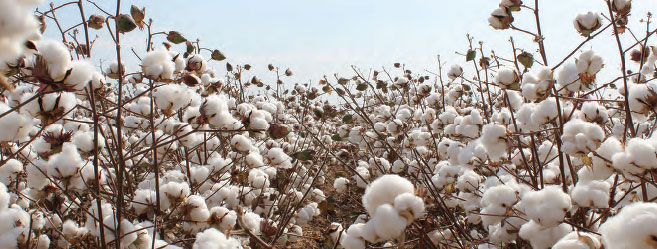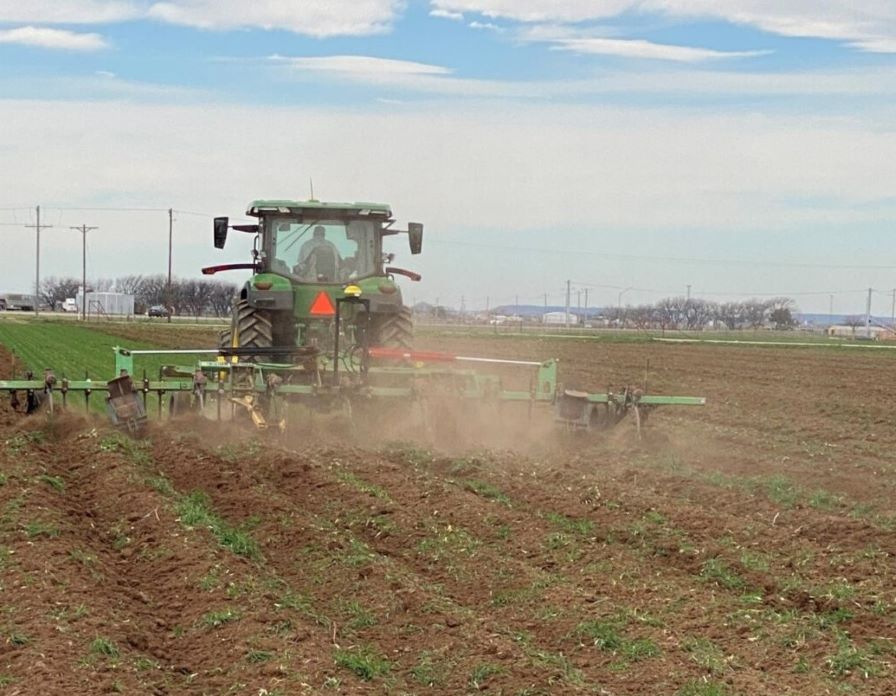Cleveland: Global Demand Plays Role in Volatile Cotton Market
Special for Bayer CropScience
In a rather volatile market last week, the December New York ICE contract was near unchanged, gaining a few points and continuing to trade the 120.00-cent mark within a wide range from 113.00 to 135.00. July, as suggested by the on-call sales report, climbed more than 20 points higher during the week. Friday was the first notice day on the July contract and a large Memphis merchant has surfaced as a very strong stopper and will likely take all deliveries as they did in May. The July contract is trading near the 166.00-cent mark, up from last week’s 146.00 cents. Near term technicals are bearish, but again December has been the victim of price fixations on the July contract. With the delivery period now in progress, the December contract will attempt to drift higher.
Demand from China continues to be hand to mouth and mills are being squeezed a bit by lenders there. However, crop conditions, especially in the U.S., appear to be very supportive of the market. Global demand is not declining; it is simply not growing as fast as it had during the prior three years. Given the increased land area devoted to global cotton production in 2011, the market remains tentative about moving higher until the critical Texas/Southwest crop is better defined. That is, the market is still in a weather trading mode as it waits until the mid-to-late July period when global conditions will be better defined. Thursday’s USDA June planted acreage report will be faded by the market as it will include planted acreage that has been zeroed out by the drought.
The extreme drought covering the entire Southwest has essentially destroyed the entire dryland crop in that region. (http://drought.unl.edu/dm/monitor.html) It is doubtful that anymore that 10% of dryland plantings will be harvested. Too, with temperatures as high as 107 to 110 degrees in the Lubbock area, much of the irrigated cotton is under severe stress. The entire partially irrigated crop is under extreme stress. The Coastal Bend and portions of the Blacklands of Texas received moisture this week, but generally it was too late to allow for any significant improvement of crop conditions there.
The Delta states experienced favorable weather this week and the crop made very good progress. Nevertheless, some growers have replanted up to three times, and some fields are suffering from low plant populations; a problem that will cause a yield reduction.
The Southeast region, especially Georgia and south Alabama, are also facing widespread extreme drought conditions. However, much of the cotton in those areas received very beneficial rains last week and those rains are expected to continue through this week.
Many of the mill fixations were done via the old crop/new crop spread. That is, they bought the July and sold the December contract. Their idea was that they could fix the price on cotton already purchased and still hold a short futures position in hopes that prices moved lower. However, it should be noted that the December on-call sales are nearly four times greater than call purchases. Thus, the December could get some unexpected support as mills will have to buy the December contract to get out of those newly created short positions in the futures market. Technicians are not favoring the cotton market, but we are now in the delivery period for the July contract and that should allow December to float gingerly higher. However, the December contract should stall for now near the 128.00 cent level.









